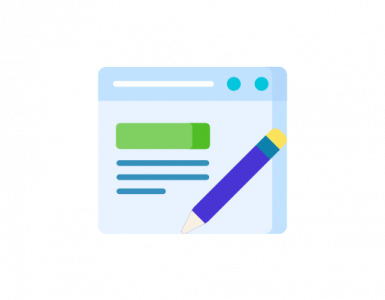 ISTQB Agile Tester Certification
ISTQB Agile Tester Certification
If you are an interested in obtaining more information about the ISTQB Agile Tester Certification, you have come to the right place. Most projects today have moved from Waterfall to Agile, so it is important that you have the right information to leverage best practices when testing on an Agile project. Once you understand Agile concepts and how testing should really be done, you can provide some tremendous education to your peers and other agile team members.
The certification for ISTQB Agile Tester Certification is designed for professionals who are working within Agile. It is also for professionals who are planning to start implementing Agile methods in the near future, or are working within companies that plan to do so, The certification provides an advantage for those who would like to know the required Agile activities, roles, methods, and methodologies specific to their role.
The ISTQB Agile Tester Certification qualification is aimed at four main groups of professionals:
1. Professionals who have achieved in-depth testing experience in traditional methods and would like to get an Agile Tester Certificate.
2. Junior professional testers who are just starting in the testing profession, have received the Foundation Level certificate, and would like to know more about the tester’s role in an Agile environment.
3. Professionals who are relatively new to testing and are required to implement test approaches, methods and techniques in their day to day job in Agile projects.
4. Professionals who are experienced in their role (including unit testing) and need more understanding and knowledge about how to perform and manage testing on all levels in Agile projects.
These professionals include people who are in roles such as testers, test analysts, test engineers, test consultants, test managers, user acceptance testers, and software developers. This ISTQB Agile Tester Certification may also be appropriate for anyone who wants a deeper understanding of software testing in the Agile world, such as project managers, quality managers, software development managers, business analysts, IT directors, and management consultants
Prerequisite: You must have the ISTQB CTFL Foundation Level certification
Exam: 1 hour with 40 multiple choice questions
Pass Rate: 65%
Exam Registration: Click here to register for the ISTQB Agile Tester Certification exam.
Exam Cost: $199 USD
Recommended Book: Agile Testing Foundations: An ISTQB Foundation Level Agile Tester guide
Syllabus: In order to pass the exam, you must study the syllabus and understand the material. Click here to download the syllabus.
Sample Exam: It is always a great idea to review the sample exams so that you can get familiar with the types of questions that you will see on the test. The more questions you can review, the more confident and prepared you will be for your exam. Click here for sample questions and click here for sample answers.
Outline: Here is a basic outline of the material you must know in order to successfully pass the ISTQB Agile Tester Certification exam.
Chapter 1: Agile Software Development
The tester should remember the basic concept of Agile software development based on the Agile Manifesto.
The tester should understand the advantages of the whole-team approach and the benefits of early and frequent feedback.
The tester should recall Agile software development approaches.
The tester should be able to write testable user stories in collaboration with developers and business representatives.
The tester should understand how retrospectives can be used as a mechanism for process improvement in Agile projects.
The tester should understand the use and purpose of continuous integration.
The tester should know the differences between iteration and release planning, and how a tester adds value in each of these activities.
Chapter 2: Fundamental Agile Testing Principles, Practices, and Processes
The tester should be able to describe the differences between testing activities in Agile projects and non-Agile projects.
The tester should be able to describe how development and testing activities are integrated in Agile projects.
The tester should be able to describe the role of independent testing in Agile projects.
The tester should be able to describe the tools and techniques used to communicate the status of testing in an Agile project, including test progress and product quality.
The tester should be able to describe the process of evolving tests across multiple iterations and explain why test automation is important to manage regression risk in Agile projects.
The tester should understand the skills (people, domain, and testing) of a tester in an Agile team.
The tester should be able to understand the role of a tester within an Agile team.
Chapter 3: Agile Testing Methods, Techniques, and Tools
The tester should be able to recall the concepts of test-driven development, acceptance testdriven development, and behavior-driven development.
The tester should be able to recall the concepts of the test pyramid.
The tester should be able to summarize the testing quadrants and their relationships with testing levels and testing types.
For a given Agile project, the tester should be able to work as a tester in a Scrum team.
The tester should be able to assess quality risks within an Agile project.
The tester should be able to estimate testing effort based on iteration content and quality risks.
The tester should be able to interpret relevant information to support testing activities.
The tester should be able to explain to business stakeholders how to define testable acceptance criteria.
Given a user story, the tester should be able to write acceptance test-driven development test cases.
For both functional and non-functional behavior, the tester should be able to write test cases using black box test design techniques based on given user stories.
The tester should be able to perform exploratory testing to support the testing of an Agile project.
The tester should be able to recall different tools available to testers according to their purpose and to activities in Agile projects.
I hope this information has been helpful. I wish you the best of luck as you prepare and pass your ISTQB Agile Tester Certification!


